brand
FirstBank’s Firstmonie Agents Hits 100,000 – Impacting Hundreds of Thousands of Lives and Communities Across Nigeria
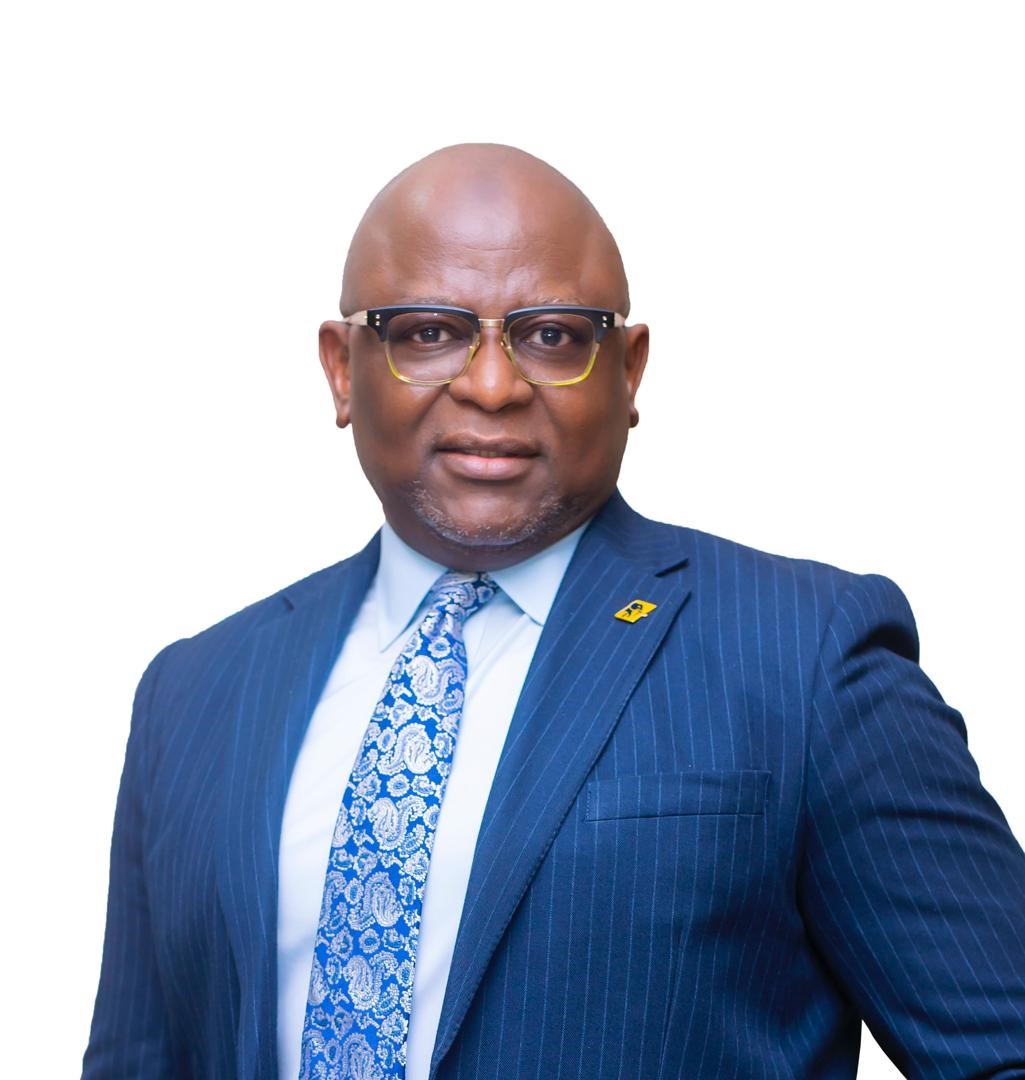
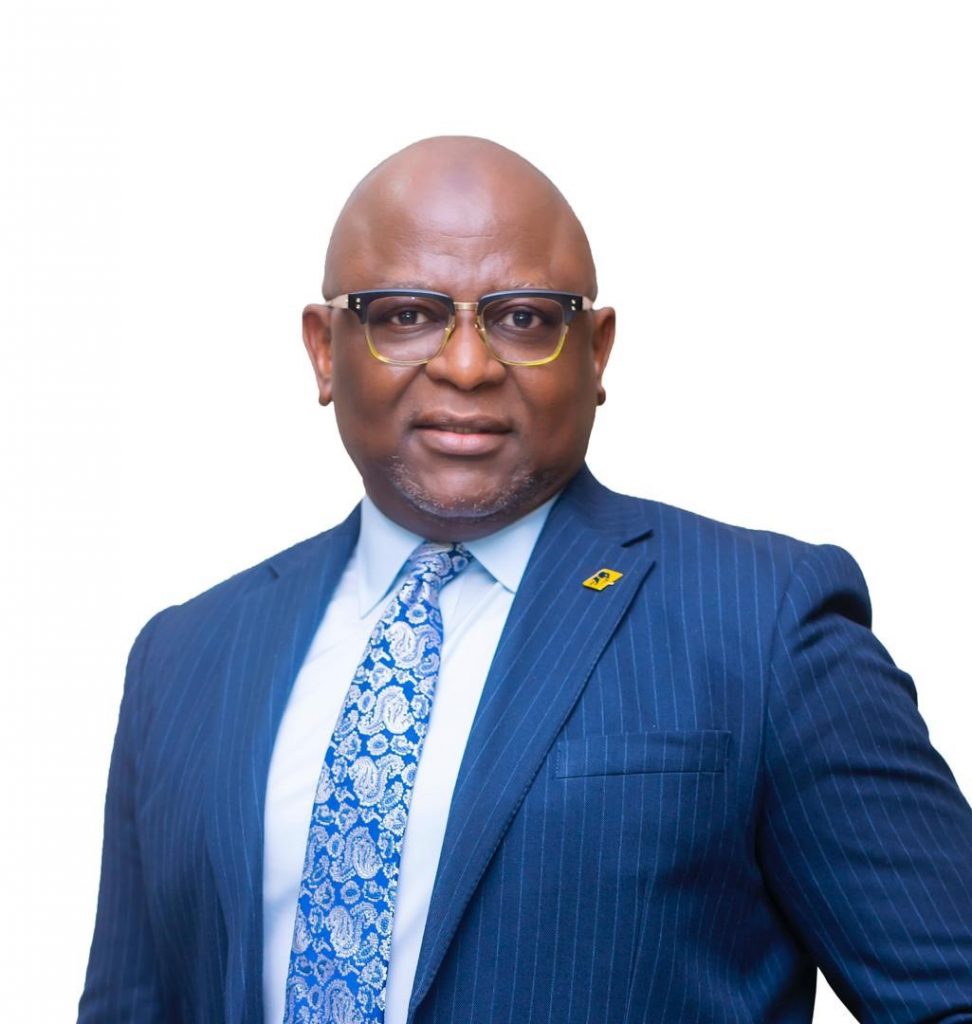
If you live in Lagos, Abuja or Port Harcourt, or you reside in any of the other state capitals, you probably take for granted that you actually live in the better of the two worlds that make up Nigeria when it comes to banking. Take Lagos, for example, you would find a bank in almost any corner you turn. You have many streets in business or commercial areas in the city that are lined up by nothing but banks in all their glory and magnificence. If a count is taken, it could be established that there are probably more bank branches in Lagos than any other branded business outlets or branded activity centres – if street stores and religious centres are excluded.
Many people in city centres somehow assume that this situation of banks being in your face in cities is the same reality that prevails in most parts of the country. They have no idea that there are parts of Nigeria, especially the hinterland, where people take the absence of banks for granted the same way city dwellers take the preponderance of bank branches for granted. To get to the nearest bank, people in the hinterland who live this reality every day would have to travel many kilometres to get to their state capitals or some other large towns. These are the people living in the worse of the two worlds you find in Nigeria as far as having bank presence is concerned.
Imagine if the situation were reversed and city dwellers had to travel many kilometres to get to the nearest bank branch where they could do their transactions. It is not unlikely that such a situation would be accompanied by a ballooning of the stress levels in city dwellers, increased road rage on city highways and heightened frustration generally. How would people who spend multiple hours in traffic on a daily basis, work longer than counterparts elsewhere for far less remuneration, enjoy less sleep on their beds and less time with family and loved ones, cope with the additional burden of walking or driving endlessly in search of a bank to do their transactions? How? Just how?
So city dwellers should indeed be thankful for their world. And while at it, they as well as people in the hinterland, who live in the other world, should not be shy to extend appreciation to those working so hard and tirelessly to bridge the gap between the two worlds in Nigeria. The Central Bank of Nigeria’s (CBN) financial inclusion initiative geared towards bringing the unbanked and underbanked as well as communities in Nigeria’s hinterland into the formal financial ecosystem has been key to efforts to bridge the gap. The CBN’s mandate to ensure the availability of affordable financial products and services to all individuals and groups of people in Nigeria, regardless of location, literacy level, familiarity with technology or accessibility to modern infrastructural facilities, has been wholly embraced, supported and promoted by FirstBank.
FirstBank’s unmatched commitment to financial inclusion is informed by the bank’s undivided focus on making real impact across Nigeria. Hear Dr. Adesola Adeduntan, the Chief Executive Officer of the premier bank in West Africa and the leading financial inclusion services provider in Nigeria for over 127 years: “The key strength of our franchise is our ability to look at gaps in the society and develop products and services that [address those gaps].” Continuing, he notes that as an integral part of the bank’s strategy, “We believe that by significantly working with the Central Bank to improve the financial inclusion index of the country, we would, as FirstBank, be assisting [the] country to address poverty, to address hunger, thereby also promoting security of life and property because when people are gainfully employed, the implication is that they think less of crime.”
It is therefore not surprising that FirstBank has driven the financial inclusion initiative much more vigorously than any other bank in Nigeria, with its Firstmonie Agent channel, which crossed the 100,000 Agents mark a few days ago, being among the bank’s many initiatives to expand financial access in the country. The 100,000 Agents feat in itself speaks volumes about the bank’s strides in the financial inclusion space. No other bank comes anywhere close to FirstBank in terms of number and spread of agents in their agent banking networks. FirstBank’s Firstmonie Agents and the thousands of staff they employ are in all the 774 local government areas in Nigeria save two and, in 2020 alone, processed over 295 million transactions with a total value of N6.65 trillion and opened more than 196,000 accounts. However, for FirstBank, it is not about number or competition with others or even being the largest bank-led network in Africa, but the impact the Firstmonie Agents channel it is creating, as Dr Adeduntan highlighted above. His deputy, Francis Shobo agrees, saying FirstBank is looking beyond numbers and considering impact. He makes a bold declaration, “We are trying to make those Agents the centre of the financial ecosystem in the country.” This probably explains why Firstmonie Agents are considered by the bank as community heroes that it is planting all over the nation. And this is the sense one gets in interviews with Agents and customers across the country.
Aiyetoro is a riverine community in Ilaje Local Government Area of Ondo State. It has no banks, according to Stephen Adeleye, a Firstmonie Agent serving Aiyetoro community. He recounts how Firstmonie has impacted his community. Adeleye says Firstmonie has provided easy access to banking ensuring that “people in the community now have this kind of savings habit” – a reference to the growing savings culture in Aiyetoro. One of his customers, Tina Farodoye, who operates a grocery store in the community says Firstmonie has helped her business to grow. She can now buy her stock in bulk all the way from Lagos where they are relatively inexpensive (even with transport costs added) compared to her community, all because she is able to transfer funds through Agent Stephen to the wholesalers in Lagos. This has improved her business profitability by increasing the profit margin in her business.
Ephraim Osinachi, is a Firstmonie Agent in Obehie, Asa Ukwa West, Abia State. He serves customers across all ages, including the very aged, as all customers are assisted with their transactions, unlike the use of ATM where the customer is practically on their own. He says market traders take advantage of his presence in the community to make lodgements at the end of the day’s trade. He and his staff wait until traders are done at the market (unlike your regular banks which shut their doors to customers at four o’clock, generally). The advantage this offers the people is invaluable. He cites a case where a customer’s house was raided by robbers in their absence and all the robbers could find after ransacking the entire house was fifty naira cash and old phones valued at N3,000. His services are enabling his community to avoid keeping bulk cash at home and the consequent risk of being robbed and traumatised by men of the underworld.
Orode Hesse, Firstmonie Agent in Ubeji, Warri South, Delta State is both emphatic and ecstatic about impact Firstmonie has had on her life. She enthuses that it has really impacted and empowered her financially and enabled her to empower others, especially other women. She has six employees, five of whom are female. So she sees Firstmonie as a business or platform to employ and empower women. Interestingly, Orode is part of the 26 per cent of Firstmonie Agents that are women, a fact that points to the important role Firstmonie is playing in driving women economic empowerment.
Abubakar Aki Bolaji, is a Firstmonie Agent along Karishi Road, Orozo in FCT, Abuja. He points out that the nearest bank to his community is 15km away. He is pleased that his presence as an Agent in the community has cut out the costs of transportation his people would have continued to incur in order to access banking services. His sentiment and delight are shared by the teeming customers he serves. This situation is very common in the North given its landmass and the dispersed nature of human settlements. Dr Adeduntan relates how a senior government official in Jigawa State highlighted how important the presence of Firstmonie Agents was when he informed him that all across a 70km stretch from Gumel, where there was the branch of a bank, there were no banks anywhere in sight. All he saw were at least two Firstmonie Agents in that long stretch of 70km, no banks. Without those two Agents, all the people in the settlements along that 70km stretch would be without access to banking services.
Another Firstmonie Agent, Mohammed Tatari, serving Tudun Wada in Bununu, Bauchi State, says his services are helping to drive commerce in his community as traders are now able to transfer funds to the wholesalers elsewhere from whom they buy. His services are helping traders to avoid carrying large cash with them given the dire security situation. He noted that the people used to travel elsewhere just to access banking service. His presence has changed all that now. He concludes that Firstmonie is changing his community (for good). One woman who would agree with him is Halima, a housewife and petty trader in the outskirts of Abuja. She discovered Firstmonie through her co-tenant, during the recent lockdown due to COVID-19, and was excited that she could access funds at the Firstmonie Agent outlet close to her and send money to her mother in far away, Maiduguri in Borno State. She had been unable to move to Garki where her bank branch was because of the lockdown.
Besides ensuring that individuals in the suburbs do not have to travel for long hours to the city for their banking activities, Firstmonie Agents are also bridging the gap between the tech-savvy and the low-literacy clients as the Agent network represents the convenient and comfortable alternative for customers that are unacquainted with sophisticated digital channels. And as Firstmonie Agents give their best, FirstBank, on its part, has been doing everything to encourage the Agents. In its inaugural Firstmonie Agent Banking Awards, FirstBank rewarded 37 leading Agents that have promoted financial inclusion in the country. Thirty-one (31) Agents each won the sum of N250,000 at the state level while five Agents won the sum of N1,000,000 at the regional level. At the national level, the grand prize of N2,500,000 was won by Zayyanu Hassan Ishaq, an Agent from Abuja (North Central), who described it as a miracle and noted that it would spur him to work harder.
As further encouragement and to promote the business activities of Firstmonie Agents, the bank announced the provision of loan facilities of up to N1,000,000 to the Agents. This new credit scheme, which they can access 24 hours a day, can be processed in less than two minutes. The scheme means more empowerment and business expansion for Firstmonie Agents. And the expansion can go beyond Nigeria as Dr Adeduntan says FirstBank is looking beyond Nigeria to other African countries where FirstBank operates, like Ghana and DRC – a country with over 80 million people – to promote financial inclusion and begin to address poverty on the African continent through the Firstmonie plat.
brand
GTCO Proudly Headlines the NPA Lagos International Polo Tournament as Main Sponsor— Championing Great Experiences and Heritage


Guaranty Trust Holding Company Plc (GTCO Plc) (NGX: GTCO; LSE: GTCO), one of Africa’s leading financial services groups, is proud to announce its continued support as the main sponsor of the NPA Lagos International Polo Tournament, one of Africa’s oldest and most prestigious sporting events. The 2026 edition will be held at the Lagos Polo Club, Ikoyi, from Tuesday, January 27 to Sunday, February 15, bringing together top local and international polo teams and spectators from across the continent and beyond.
The 2026 NPA Lagos International Polo Tournament will feature top‑tier teams competing for major prizes, including the Majekodunmi Cup, Independence Cup, Open Cup, Silver Cup and Low Cup, among others. Guests can expect a fusion of thrilling equestrian action, polo-inspired lifestyle showcase, and curated hospitality experiences. The event will also be livestreamed, allowing audiences online to share in the excitement and spectacle.
Commenting on GTCO’s role as main sponsor of the Lagos International Polo Tournament, Segun Agbaje, Group Chief Executive Officer, said: “This tournament, one of the oldest in Africa, celebrates not only the noble sport of polo but the values we hold dear as a brand: teamwork, discipline, fair play, and a commitment to excellence. Beyond the field, it showcases Nigeria and Africa to a global audience, reinforcing the continent’s place on the world stage. Our longstanding sponsorship of the NPA Lagos International Polo Tournament reflects our conviction that sport can amplify opportunity, foster connections, and deliver world-class experiences for all.”
The NPA Lagos International Polo Tournament has long been celebrated not only for its thrilling competition and equestrian excellence but also for its rich heritage and cultural resonance within Africa’s sporting tradition. GTCO’s sponsorship embodies the Group’s commitment to creating platforms that unite communities and drive social impact across diverse audiences.
brand
Fidelity Bank appoints Onwughalu as Chairman following completion of Chike-Obi’s tenure
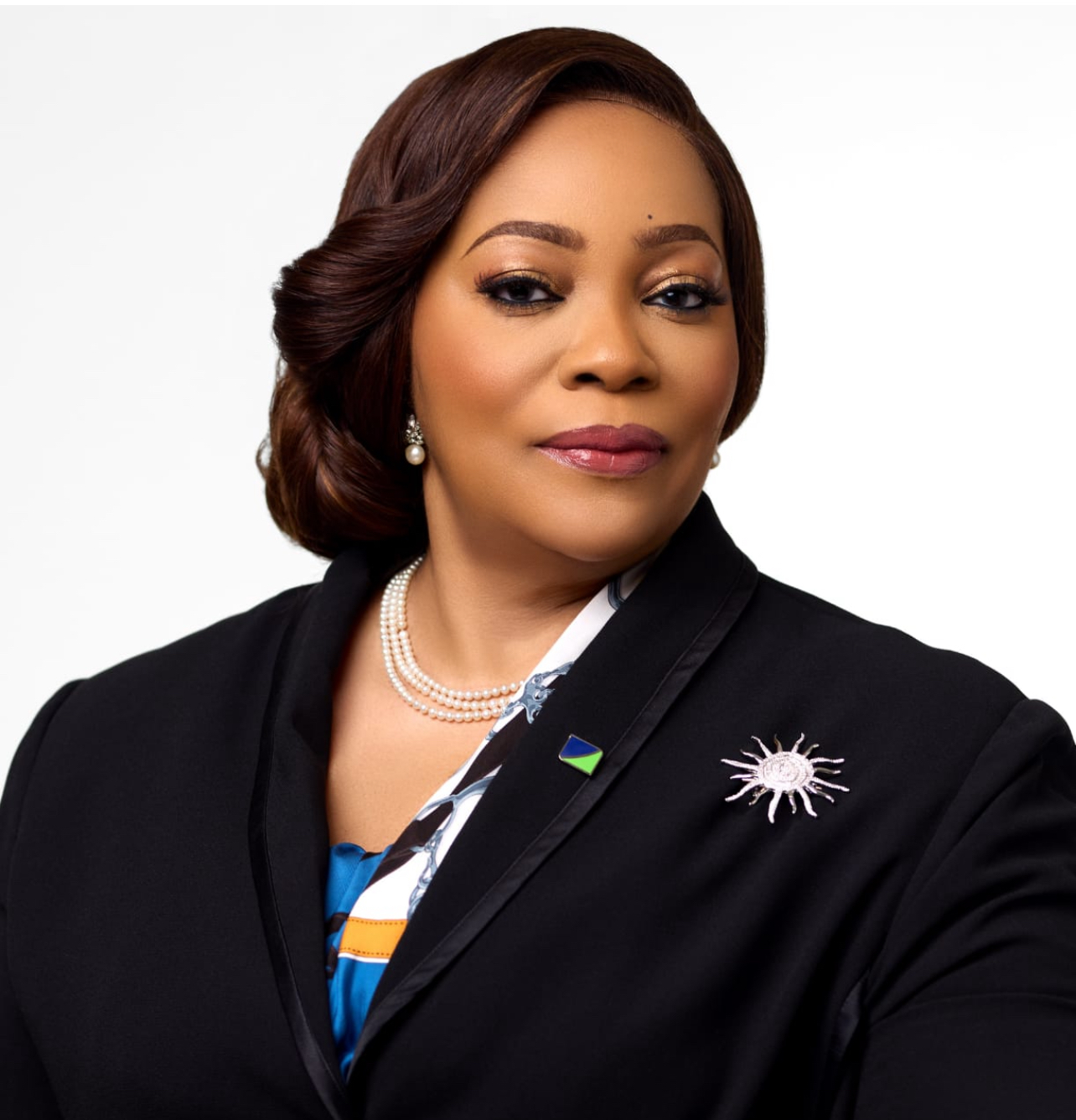
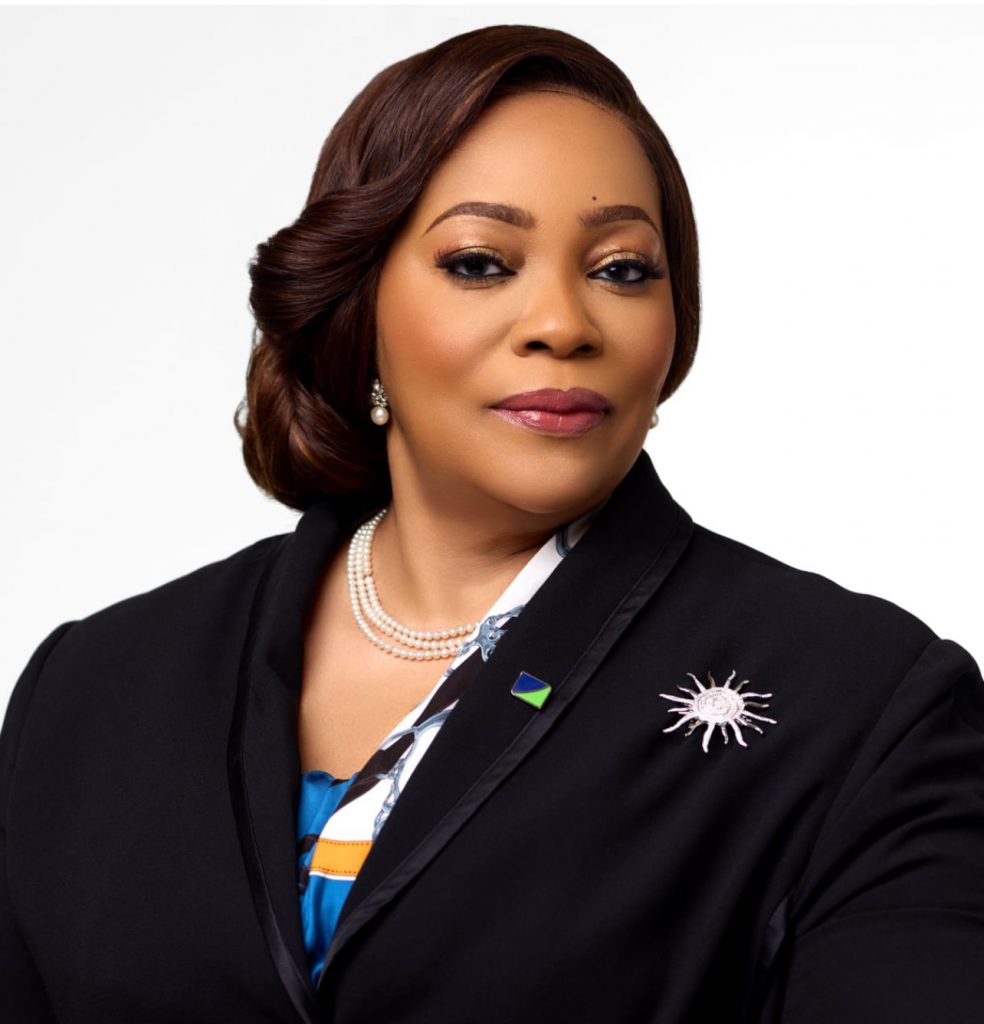 Tier one lender, Fidelity Bank Plc, has announced the completion of the tenure of Mr. Mustafa Chike-Obi as Chairman of its Board of Directors effective December 31, 2025, and the appointment of Mrs. Amaka Onwughalu as the new Chairman of the Board, effective January 1, 2026.
Tier one lender, Fidelity Bank Plc, has announced the completion of the tenure of Mr. Mustafa Chike-Obi as Chairman of its Board of Directors effective December 31, 2025, and the appointment of Mrs. Amaka Onwughalu as the new Chairman of the Board, effective January 1, 2026.
The board transitions are in alignment with the Bank’s policy and have been communicated to the Central Bank of Nigeria, the Nigerian Exchange Group, and other stakeholders.
Under Mr. Chike-Obi’s leadership, Fidelity Bank repaid its Eurobond, completed the first tranche of its public offer and rights issue that were oversubscribed by 237 percent and 137.73 percent respectively, expanded internationally to the United Kingdom, and received improved ratings from various agencies amongst a long list of achievements. His tenure also saw the Bank strengthen its capital position, record steady growth in customer deposits and total assets, deepen its digital banking capabilities, and enhance its corporate and investment banking proposition. The bank equally made notable progress in governance, risk management, and operational efficiency, all of which contributed to strengthened market confidence and the Bank’s sustained upward performance trajectory.
Reflecting on his tenure, Mr. Mustafa Chike-Obi said, “It has been a privilege to serve as Chairman of Fidelity Bank. The dedication of our Board, management, and staff has enabled us to reach significant milestones. I am confident that the Bank will continue to thrive and deliver value to all stakeholders.”
Mrs. Amaka Onwughalu’s appointment marks a new chapter for Fidelity Bank. She joined the Board in December 2020 and has chaired key committees. With over 30 years of banking experience, including executive roles at Mainstreet Bank Limited and Skye Bank Plc. She holds degrees in Economics, Corporate Governance, and Business Administration, and has attended executive programmes at global institutions. Mrs. Onwughalu is a Fellow of several professional bodies and has received awards for accountability and financial management
“I am honoured to lead the Board of Fidelity Bank at this exciting time. Our recent achievements have set a strong foundation for continued growth. I look forward to working with my colleagues to drive our strategy and deliver sustainable value,” commented Mrs. Onwughalu.
Ranked among the best banks in Nigeria, Fidelity Bank Plc is a full-fledged Commercial Deposit Money Bank serving over 9.1 million customers through digital banking channels, its 255 business offices in Nigeria and United Kingdom subsidiary, FidBank UK Limited.
The Bank is a recipient of multiple local and international Awards, including the 2024 Excellence in Digital Transformation & MSME Banking Award by BusinessDay Banks and Financial Institutions (BAFI) Awards; the 2024 Most Innovative Mobile Banking Application award for its Fidelity Mobile App by Global Business Outlook, and the 2024 Most Innovative Investment Banking Service Provider award by Global Brands Magazine. Additionally, the Bank was recognized as the Best Bank for SMEs in Nigeria by the Euromoney Awards for Excellence and as the Export Financing Bank of the Year by the BusinessDay Banks and Financial Institutions (BAFI) Awards.
brand
UBA Group Dominates 2025, Banker Awards, Emerges Africa’s Bank of the Year, For Third Time in Five Years
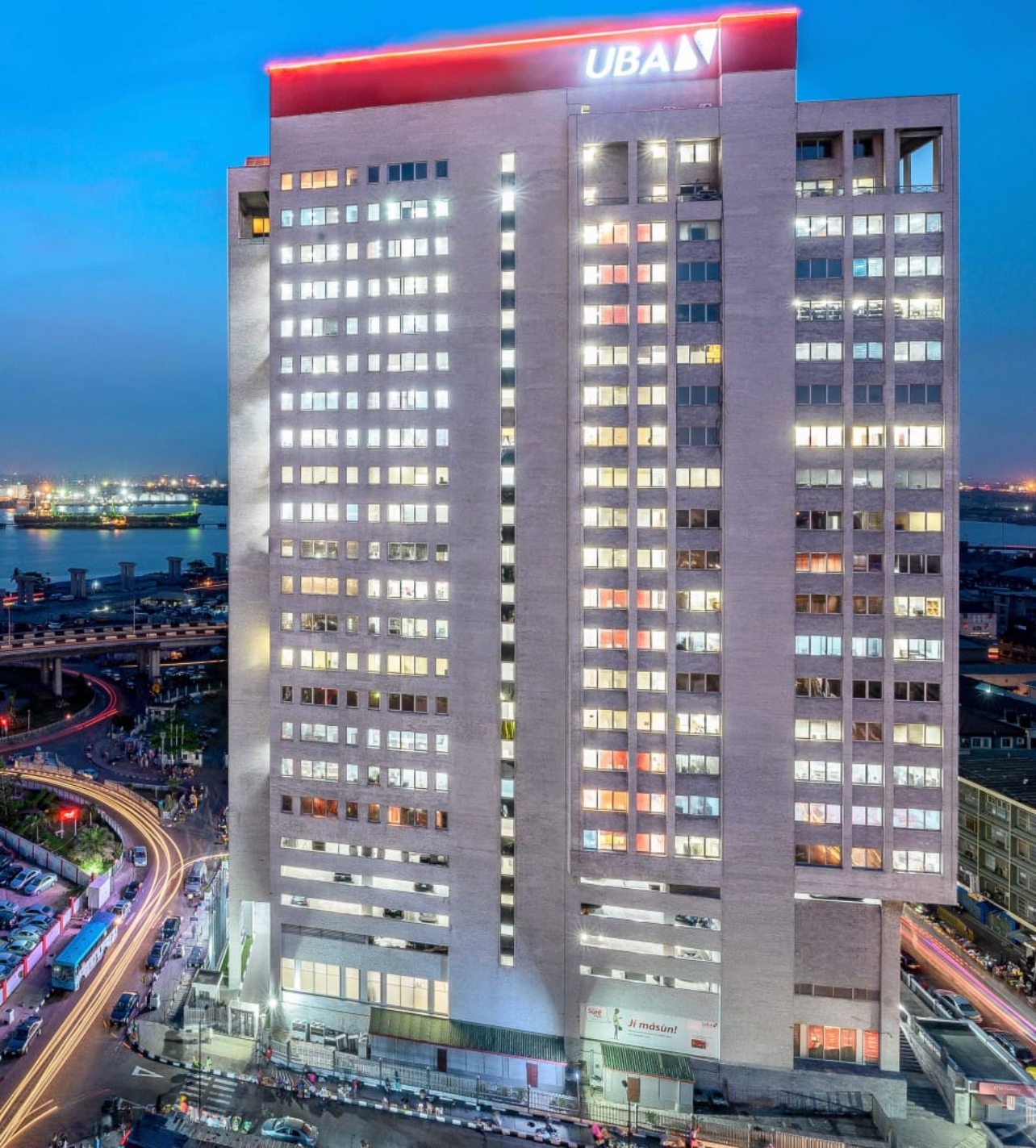
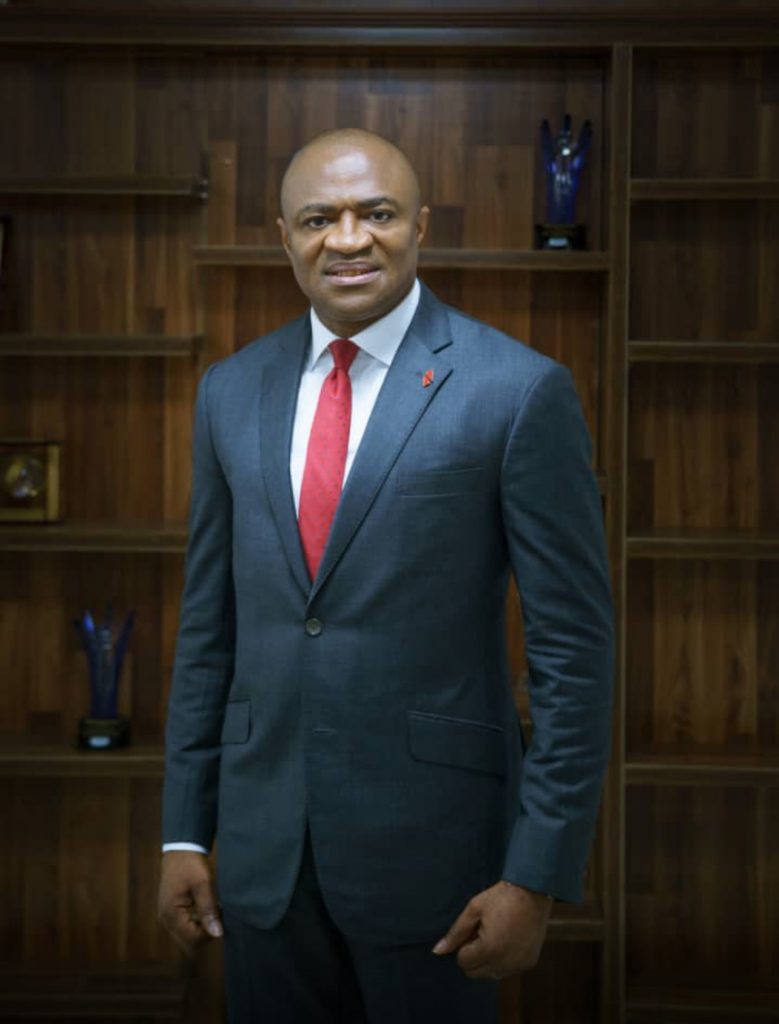
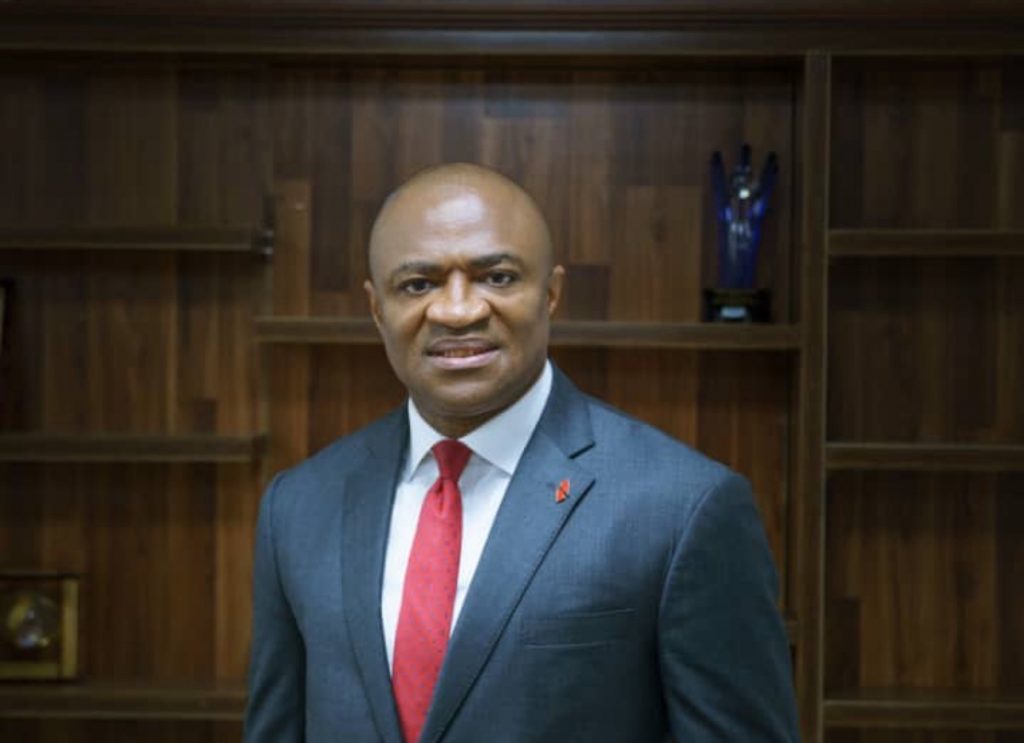 ….Wins Best Bank in Nine out of 20 African Subsidiaries
….Wins Best Bank in Nine out of 20 African Subsidiaries
Africa’s Global Bank, United Bank for Africa (UBA) Plc, has once again, reaffirmed its leadership as one of the continent’s most innovative and resilient financial institutions, as the bank has, for the third time in five years, been named the African Bank of the year 2025 by the Banker.com.
UBA also won the Best Bank of the Year awards in nine of its 20 African subsidiaries, bringing its total awards this year to ten as UBA Benin, UBA Chad, UBA Republic of Congo (Congo-Brazzaville), UBA Liberia, UBA Mali, UBA Mozambique, UBA Senegal, UBA Sierra Leone, and UBA Zambia, all came out tops as the best banks in their respective countries, underscoring the bank’s strength across West, Central and Southern Africa and highlighting the depth of its Pan-African franchise.
The Banker.com, a leading global finance news publication published by the Financial Times of London, organises the annual Bank of the Year Awards, and this year’s edition was held at a grand ceremony at the Peninsula, London, on Wednesday.
The Chief Executive Officer, UBA UK, Deji Adeyelure, received the awards on behalf of the bank, representing the Group Managing Director/CEO, Oliver Alawuba, and was accompanied by the bank’s Head Business Development, Mark Ifashe, and Head, Financial Institutions, Shilpam Jha.
The Banker’s awards are widely regarded as the most respected and rigorous in the global banking industry, celebrating institutions that demonstrate outstanding performance, innovation and strategic execution.
In its remarks on UBA’s winnings, the banker.com said, “For the third time in five years, UBA Group has won the coveted Bank of the Year award for Africa. UBA Group time after time punches above its weight against its larger African rivals. The bank this year also takes home nine separate country awards (one more than it gained for its last continental win in 2024), equivalent to around a quarter of the awards for the continent, and more than any of its continent-wide rivals.”
Continuing, it said, “Perhaps even more impressive is the fact that the awards were won across a broad geographic spread, going to lenders based in the Economic Community of West African States (Benin, Liberia, Senegal, Sierra Leone, and former member Mali), the Central African Economic and Monetary Community (Chad, Republic of Congo) and the Southern African Development Community (Mozambique, Zambia). Its award wins were particularly notable in the highly competitive categories for Benin and Mozambique.”
The Banker also highlighted UBA’s strong financial performance and commitment to future growth. In 2024, the Group recorded a 46.8 per cent increase in assets and a 6.1 per cent rise in pre-tax profits in local currency terms, while continuing to invest significantly in talent and technology. West Africa remains UBA’s heartland, with operating revenue and profit increasing by 87 per cent and 89 per cent respectively in H1 2025.
The bank’s digital and innovation leadership was equally recognised. During the year under review, and launched its Advance Top-Up buy-now-pay-later feature on the *919# USSD platform, expanding financial access for customers, while the bank’s chatbot Leo continued its strong growth trajectory, with transaction volumes rising by 29 per cent year-on-year in H1 2025. Notably, in August, Leo became the first African banking chatbot to enable cross-border payments via the Pan-African Payment and Settlement System (PAPSS).
UBA’s Group Managing Director/Chief Executive Officer, Oliver Alawuba, while reacting to the achievement, said the recognition affirms the bank’s long-term strategy and customer-first philosophy.
“This honour reflects the strength of our Pan-African network, the trust of our customers, and the dedication of our people. Winning Africa’s Bank of the Year for the third time in five years is not by chance; it is a testament to disciplined execution, innovation, and a deep understanding of the markets we serve,” Alawuba said.
“Our nine country awards across diverse regions of Africa show that UBA is not just growing, but growing with impact. We remain committed to driving financial inclusion, supporting economic development, and deploying technology that makes banking simpler, faster, and more accessible to Africans everywhere,” he added.
United Bank for Africa is one of the largest employers in the financial sector on the African continent, with 25,000 employees group-wide and serving over 45 million customers globally. Operating in twenty African countries, the United Kingdom, the United States of America, France and the United Arab Emirates, UBA provides retail, commercial and institutional banking services, leading financial inclusion and implementing cutting-edge technology.
-

 news5 years ago
news5 years agoUPDATE: #ENDSARS: CCTV footage of Lekki shootings intact – Says Sanwo – Olu
-

 lifestyle6 years ago
lifestyle6 years agoFormer Miss World: Mixed reactions trail Agbani Darego’s looks
-

 health5 years ago
health5 years agoChairman Agege LG, Ganiyu Egunjobi Receives Covid-19 Vaccines
-

 lifestyle4 years ago
lifestyle4 years agoObateru: Celebrating a Quintessential PR Man at 60
-

 health6 years ago
health6 years agoUPDATE : Nigeria Records 790 new cases of COVID-19
-

 health6 years ago
health6 years agoBREAKING: Nigeria confirms 663 new cases of COVID-19
-

 entertainment1 year ago
entertainment1 year agoAshny Set for Valentine Special and new Album ‘ Femme Fatale’
-

 news9 months ago
news9 months agoBREAKING: Tinubu swears in new NNPCL Board


